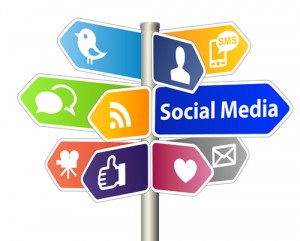The usefulness of online social networking is undeniable and it’s no surprise that we as individuals are embracing it. Social networks are communications media and a part of everyday life. They can be valuable tools in gathering and disseminating news and information. They also create some potential hazards we need to recognize.
These tools have the potential to present a minefield of legal and professional hazards for those who don’t take the utmost care in how, what and where they post. Be courteous and respectful of people’s time, and don’t overdo the self-promtion. There’s a line between taking and giving; in networking, think of others before yourself and you will reap the benefits.
Whether blogging, participating in open networks like Facebook and Twitter, you can reduce some risk by doing the following:
1. Be mindful of your own confidentiality: we must protect professional integrity and reputations. What you do on social networks should be presumed to be publicly available to anyone, even if you have created a private account. You can use privacy controls online to limit access to sensitive information, but these are only a deterrent, not an absolute insulator.
2. Monitor your web presence regularly: social networking has resulted in some people transmitting all communications through Facebook and Twitter, expecting others to be there to receive their messages.
3. Be aware that you’re never truly anonymous on the web: anything posted on the web can be traced back, sometimes with severe consequences. Anything you write on Twitter or your blog is indexed by Google and kept permanently. You can send a tweet or a Facebook status update in seconds. Pause and think before you hit that ‘update’ button.
For creative folks of all stripes — designers, photographers, writers, filmmakers, musicians, theater people, crafters, cupcake artistes, you name it — Facebook represents a huge step forward in our ability to get the word out about our projects and events, recruiting or research and find a larger audience for what we do.
Many people are unaware of Facebook and Twitter risks when they create a profile on these social networking sites. Facebook allows people from all around the world to connect with old friends, and make new ones, using a community interface. But despite the benefits of this social networking site, there is bound to be risk.
Social networking risks are not a reason for you to stop using those sites, because it can be beneficial. It can be used as a portfolio for work or school, or recreationally, but be careful of information you post and take from it. Just like the offline world, don’t trust everyone and look out for suspicious people. If you follow these suggestions, you can enjoy social networks without worrying.
About the Author: Terrah Reeves is a Physician Recruitment Coordinator at Lake Regional Health System and Member of MINK (Missouri, Iowa, Nebraska, and Kansas Physician Recruitment & Retention Network). MidwestMD is a non-profit association of in-house physician recruitment specialists that live and work in Missouri, Iowa, Nebraska or Kansas (MINK).
Sponsor:
Though the views expressed above are solely the writer’s, MINK supports “The Dose with Dr. Goodhook” and is partnering with Adventures in Medicine to create an open, inspiring and insightful community for residents and physicians. Click here to learn more about ways that MINK is making practice purposeful.








